AI Music Covers: KiiiKiii's Kitsch Transformation Through Artificial Intelligence
Artificial Intelligence (AI) is reshaping countless creative fields, and music is no exception. Among its many applications, AI music covers—especially those utilizing AI voice cloning—are gaining substantial attention. This article delves into one compelling example: KiiiKiii’s AI-driven version of the song 'Kitsch.' We’ll explore how AI is leveraged in music creation, the potential advantages, and the broader implications for artists and the music industry as a whole. Along the way, we’ll examine AI music composition, the generation of musical content via AI, and the ethical considerations that arise.
Revolutionizing Music Creation with AI
AI music refers to musical creations generated or influenced by artificial intelligence techniques. From composing original pieces to remixing existing tracks and creating covers of popular songs, AI in music spans a wide array of possibilities. By analyzing vast amounts of music data, AI algorithms identify patterns, styles, and preferences to craft entirely new compositions or emulate the style of renowned artists.
This technology can span multiple genres, from classical to pop, and even adjust compositions based on the listener’s tastes. One standout aspect of AI music is its ability to automate certain aspects of the creative process, making music production more accessible to a broader audience. AI-powered tools assist musicians by generating chord progressions, melodies, and track arrangements, freeing creators to focus on other creative elements.
Of course, the growing sophistication of AI in music raises significant ethical and legal questions, particularly around copyright and ownership of AI-generated content.
AI Voice Cloning: Bringing Voices to Life
AI voice cloning is a specialized application within AI music. It involves using AI to analyze and replicate the distinct traits of a person’s voice, including pitch, timbre, tone, and accent. Through training on extensive audio datasets of the individual’s voice, the AI system learns these characteristics. Once trained, it can generate new vocal performances that closely resemble the original speaker.
The potential applications are vast. AI voice cloning can bring back the voices of individuals who’ve lost theirs due to illness or injury, provide personalized voice assistants, or even create audiobooks narrated by celebrities. In music, it allows artists to cover songs in the style of other singers or produce entirely new vocal performances for their own tracks.
Yet, this technology also poses ethical challenges. Questions about consent, ownership, and misuse arise. For instance, AI voice cloning could be used maliciously to create deepfake audio without permission, potentially harming reputations or causing distress. It’s vital to address these concerns and establish appropriate safeguards as the technology evolves.
KiiiKiii’s AI Version of ‘Kitsch’: A Case Study
KiiiKiii’s AI-driven cover of ‘Kitsch’ serves as a fascinating illustration of how AI can transform existing music. The cover highlights the power of AI voice cloning, as the AI system attempts to mimic the vocal styles of various artists while performing the song. This involves analyzing the original vocal track, identifying key attributes, and then using AI to produce a new vocal performance that reflects these traits while blending in elements from different artists’ styles.
Several factors determine the success of KiiiKiii’s cover. First, the quality of the AI voice cloning technology is paramount. The AI must accurately replicate the nuances of human voices to create a believable vocal performance. Second, the selection of target artists is crucial. The AI system requires training datasets of audio recordings from these artists to grasp their vocal styles. Lastly, the overall production quality is essential. The AI-generated vocals need proper mixing and mastering to ensure a polished, professional sound.
As AI technology advances, we can anticipate increasingly sophisticated and imaginative applications in music. KiiiKiii’s cover of ‘Kitsch’ marks just the beginning of what’s possible when AI meets music creation.
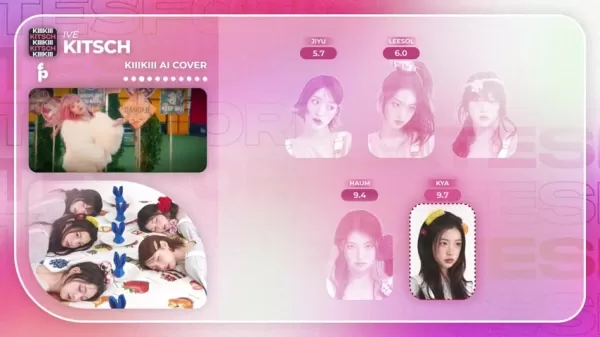
How to Create Your Own AI Music Cover
Ready to dive into AI music creation yourself? Here’s a step-by-step guide:
- Select Your Song and AI Platform:
Pick a song you’d like to cover. Make sure you have the rights or permissions if needed. Then, choose an AI music platform like Lalal.ai, Musicfy, or similar tools. Each has its own strengths, so pick one that fits your goals. - Prepare Your Audio:
Isolate the vocal track from your chosen song. Tools like Audacity or online vocal removers can help. - Train or Select an AI Voice Model:
Depending on the platform, you may train a custom AI voice model if you have enough data, or use pre-trained models. Follow the platform’s instructions carefully. - Generate the AI Cover:
Upload the vocal track to the AI platform and select your AI voice model. Let the AI do its magic. Review the results and tweak parameters like pitch, timbre, or timing as needed. - Mix and Master:
Import the AI-generated vocals into a DAW like Ableton Live or Logic Pro. Blend them with the original instrumental track, adjusting levels and applying effects like reverb, EQ, and compression for a polished sound. - Finalize and Share:
Master the track to optimize it for distribution. Share your AI cover on platforms like YouTube, SoundCloud, or wherever else your audience hangs out.
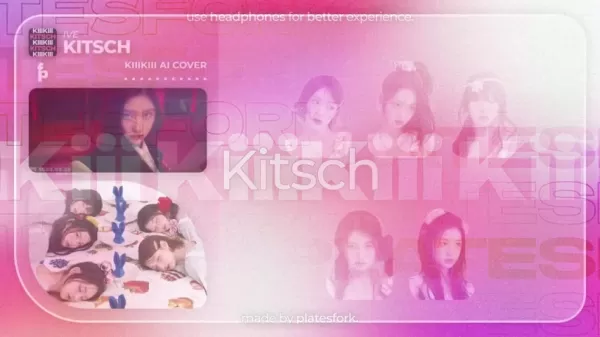
Pricing Models for AI Music Creation
AI music creation tools come in various pricing formats, ranging from free options with limited features to premium subscriptions offering advanced capabilities. Here’s a quick overview of some popular platforms:
- Lalal.ai: Offers a free plan for basic functions like stem splitting. Paid tiers provide larger files and faster processing.
- Musicfy: Uses a credit-based system where you buy credits for features like voice cloning and song generation. Prices vary depending on usage.
- Voicemod: Focuses on real-time voice modification and offers subscription plans for commercial use and additional features.
The cost of creating an AI music cover varies based on the tools used, project complexity, and revision requirements. Monthly subscriptions typically range from $10 to $50, while credit-based systems charge anywhere from a few cents to several dollars per minute of generated audio. Additional expenses may include DAWs or audio editing software, which can range from one-time purchases to recurring subscriptions. Understanding these pricing structures helps you plan your AI music projects efficiently.
Pros and Cons of AI Music Covers
Like any tool, AI music covers have their advantages and drawbacks.
Pros
- Eliminates the need for formal musical training to create music.
- Cuts down production costs and speeds up the process.
- Expands creative possibilities with unique vocal styles and compositions.
- Offers personalized music experiences tailored to individual preferences.
Cons
- Raises concerns about copyright and licensing.
- May raise questions about artistic authenticity.
- Could potentially displace roles traditionally held by human musicians.
- Demands careful attention to ethical considerations and privacy concerns.
Key Features of AI Music Cover Platforms
AI music cover tools are packed with features designed to make music creation accessible to everyone. Here are some standout capabilities:
- AI Voice Cloning: Generate unique vocal styles using pre-trained models or train your own AI voice models.
- Stem Splitting: Easily extract vocal and instrumental tracks from existing songs for your AI covers.
- AI Music Generation: Compose original music with AI-generated melodies, harmonies, and rhythms.
- Real-Time Voice Changing: Modify your voice in real-time for live performances or recordings.
- Text-to-Speech: Convert text into natural-sounding vocal performances.
- Integration with DAWs: Seamlessly import and export AI-generated audio into tools like Ableton Live or Logic Pro.
- User-Friendly Interfaces: Enjoy intuitive designs that cater to both beginners and professionals.
- Customization Options: Adjust AI-generated vocals with parameters like pitch, timbre, and timing.
Practical Applications of AI Music Covers
AI music covers aren’t just for fun—they open doors to creative and professional opportunities. Here are some inspiring use cases:
- Cover Songs: Create high
Related article
 OpenAI Upgrades ChatGPT Pro to o3, Boosting Value of $200 Monthly Subscription
This week witnessed significant AI developments from tech giants including Microsoft, Google, and Anthropic. OpenAI concludes the flurry of announcements with its own groundbreaking updates - extending beyond its high-profile $6.5 billion acquisition
OpenAI Upgrades ChatGPT Pro to o3, Boosting Value of $200 Monthly Subscription
This week witnessed significant AI developments from tech giants including Microsoft, Google, and Anthropic. OpenAI concludes the flurry of announcements with its own groundbreaking updates - extending beyond its high-profile $6.5 billion acquisition
 US Government Invests in Intel to Boost Domestic Semiconductor Production
The Trump administration has prioritized establishing U.S. leadership in artificial intelligence, with reshoring semiconductor production serving as a cornerstone strategy. Recent policy moves, including proposed tariffs and financial incentives, dem
US Government Invests in Intel to Boost Domestic Semiconductor Production
The Trump administration has prioritized establishing U.S. leadership in artificial intelligence, with reshoring semiconductor production serving as a cornerstone strategy. Recent policy moves, including proposed tariffs and financial incentives, dem
 Apple's Craig Federighi Admits AI-Powered Siri Had Serious Flaws in Early Stages
Apple Executives Explain Siri Upgrade Delay
During WWDC 2024, Apple originally promised significant Siri enhancements including personalized context awareness and app automation capabilities. However, the company recently confirmed delays in deliver
Comments (11)
0/200
Apple's Craig Federighi Admits AI-Powered Siri Had Serious Flaws in Early Stages
Apple Executives Explain Siri Upgrade Delay
During WWDC 2024, Apple originally promised significant Siri enhancements including personalized context awareness and app automation capabilities. However, the company recently confirmed delays in deliver
Comments (11)
0/200
![EdwardWalker]() EdwardWalker
EdwardWalker
 August 27, 2025 at 1:01:33 PM EDT
August 27, 2025 at 1:01:33 PM EDT
This AI cover of KiiiKiii’s Kitsch blew my mind! 😍 The voice cloning tech is so wild, it’s like hearing a ghost sing. But, man, I wonder if artists are cool with their voices being used like this. Ethics aside, it’s super fun to hear!


 0
0
![TimothyMiller]() TimothyMiller
TimothyMiller
 August 25, 2025 at 5:01:22 PM EDT
August 25, 2025 at 5:01:22 PM EDT
哇,AI音乐翻唱真是个新鲜玩意儿!KiiiKiii的那个Kitsch转变,通过人工智能听起来好酷啊。想想伦理问题吧,会不会抢了原创音乐人的饭碗?不过技术应用前景无限大🤔


 0
0
![ThomasLewis]() ThomasLewis
ThomasLewis
 August 25, 2025 at 5:01:22 PM EDT
August 25, 2025 at 5:01:22 PM EDT
AIで音楽カバーがこんなに進化するなんて面白いね。KiiiKiiiのキッチュな変身、声クローニング使ってどんな感じになるんだろう?ちょっと心配だけど、創造性が広がってワクワクするよ🎵


 0
0
![RalphEvans]() RalphEvans
RalphEvans
 August 25, 2025 at 5:01:22 PM EDT
August 25, 2025 at 5:01:22 PM EDT
Whoa, AI music covers are blowing my mind! Turning KiiiKiii's kitsch style into something fresh with voice cloning sounds super innovative. Can't wait to hear how it transforms the original tracks—anyone tried it yet? 🚀


 0
0
![JimmyWilson]() JimmyWilson
JimmyWilson
 August 4, 2025 at 2:01:00 AM EDT
August 4, 2025 at 2:01:00 AM EDT
This AI cover by KiiiKiii is wild! It’s like hearing a song reborn with a totally new vibe. Makes me wonder how far this tech can go—will we all be making our own pop star covers soon? 😎


 0
0
![BrianRoberts]() BrianRoberts
BrianRoberts
 July 27, 2025 at 9:19:05 PM EDT
July 27, 2025 at 9:19:05 PM EDT
KiiiKiii's AI cover of Kitsch blew my mind! The way AI nails those vocal nuances is unreal, but I’m kinda worried about how easy it is to mimic artists now. 😅 What’s next, AI dropping whole albums?


 0
0
Artificial Intelligence (AI) is reshaping countless creative fields, and music is no exception. Among its many applications, AI music covers—especially those utilizing AI voice cloning—are gaining substantial attention. This article delves into one compelling example: KiiiKiii’s AI-driven version of the song 'Kitsch.' We’ll explore how AI is leveraged in music creation, the potential advantages, and the broader implications for artists and the music industry as a whole. Along the way, we’ll examine AI music composition, the generation of musical content via AI, and the ethical considerations that arise.
Revolutionizing Music Creation with AI
AI music refers to musical creations generated or influenced by artificial intelligence techniques. From composing original pieces to remixing existing tracks and creating covers of popular songs, AI in music spans a wide array of possibilities. By analyzing vast amounts of music data, AI algorithms identify patterns, styles, and preferences to craft entirely new compositions or emulate the style of renowned artists.
This technology can span multiple genres, from classical to pop, and even adjust compositions based on the listener’s tastes. One standout aspect of AI music is its ability to automate certain aspects of the creative process, making music production more accessible to a broader audience. AI-powered tools assist musicians by generating chord progressions, melodies, and track arrangements, freeing creators to focus on other creative elements.
Of course, the growing sophistication of AI in music raises significant ethical and legal questions, particularly around copyright and ownership of AI-generated content.
AI Voice Cloning: Bringing Voices to Life
AI voice cloning is a specialized application within AI music. It involves using AI to analyze and replicate the distinct traits of a person’s voice, including pitch, timbre, tone, and accent. Through training on extensive audio datasets of the individual’s voice, the AI system learns these characteristics. Once trained, it can generate new vocal performances that closely resemble the original speaker.
The potential applications are vast. AI voice cloning can bring back the voices of individuals who’ve lost theirs due to illness or injury, provide personalized voice assistants, or even create audiobooks narrated by celebrities. In music, it allows artists to cover songs in the style of other singers or produce entirely new vocal performances for their own tracks.
Yet, this technology also poses ethical challenges. Questions about consent, ownership, and misuse arise. For instance, AI voice cloning could be used maliciously to create deepfake audio without permission, potentially harming reputations or causing distress. It’s vital to address these concerns and establish appropriate safeguards as the technology evolves.
KiiiKiii’s AI Version of ‘Kitsch’: A Case Study
KiiiKiii’s AI-driven cover of ‘Kitsch’ serves as a fascinating illustration of how AI can transform existing music. The cover highlights the power of AI voice cloning, as the AI system attempts to mimic the vocal styles of various artists while performing the song. This involves analyzing the original vocal track, identifying key attributes, and then using AI to produce a new vocal performance that reflects these traits while blending in elements from different artists’ styles.
Several factors determine the success of KiiiKiii’s cover. First, the quality of the AI voice cloning technology is paramount. The AI must accurately replicate the nuances of human voices to create a believable vocal performance. Second, the selection of target artists is crucial. The AI system requires training datasets of audio recordings from these artists to grasp their vocal styles. Lastly, the overall production quality is essential. The AI-generated vocals need proper mixing and mastering to ensure a polished, professional sound.
As AI technology advances, we can anticipate increasingly sophisticated and imaginative applications in music. KiiiKiii’s cover of ‘Kitsch’ marks just the beginning of what’s possible when AI meets music creation.

How to Create Your Own AI Music Cover
Ready to dive into AI music creation yourself? Here’s a step-by-step guide:
- Select Your Song and AI Platform:
Pick a song you’d like to cover. Make sure you have the rights or permissions if needed. Then, choose an AI music platform like Lalal.ai, Musicfy, or similar tools. Each has its own strengths, so pick one that fits your goals. - Prepare Your Audio:
Isolate the vocal track from your chosen song. Tools like Audacity or online vocal removers can help. - Train or Select an AI Voice Model:
Depending on the platform, you may train a custom AI voice model if you have enough data, or use pre-trained models. Follow the platform’s instructions carefully. - Generate the AI Cover:
Upload the vocal track to the AI platform and select your AI voice model. Let the AI do its magic. Review the results and tweak parameters like pitch, timbre, or timing as needed. - Mix and Master:
Import the AI-generated vocals into a DAW like Ableton Live or Logic Pro. Blend them with the original instrumental track, adjusting levels and applying effects like reverb, EQ, and compression for a polished sound. - Finalize and Share:
Master the track to optimize it for distribution. Share your AI cover on platforms like YouTube, SoundCloud, or wherever else your audience hangs out.

Pricing Models for AI Music Creation
AI music creation tools come in various pricing formats, ranging from free options with limited features to premium subscriptions offering advanced capabilities. Here’s a quick overview of some popular platforms:
- Lalal.ai: Offers a free plan for basic functions like stem splitting. Paid tiers provide larger files and faster processing.
- Musicfy: Uses a credit-based system where you buy credits for features like voice cloning and song generation. Prices vary depending on usage.
- Voicemod: Focuses on real-time voice modification and offers subscription plans for commercial use and additional features.
The cost of creating an AI music cover varies based on the tools used, project complexity, and revision requirements. Monthly subscriptions typically range from $10 to $50, while credit-based systems charge anywhere from a few cents to several dollars per minute of generated audio. Additional expenses may include DAWs or audio editing software, which can range from one-time purchases to recurring subscriptions. Understanding these pricing structures helps you plan your AI music projects efficiently.
Pros and Cons of AI Music Covers
Like any tool, AI music covers have their advantages and drawbacks.
Pros
- Eliminates the need for formal musical training to create music.
- Cuts down production costs and speeds up the process.
- Expands creative possibilities with unique vocal styles and compositions.
- Offers personalized music experiences tailored to individual preferences.
Cons
- Raises concerns about copyright and licensing.
- May raise questions about artistic authenticity.
- Could potentially displace roles traditionally held by human musicians.
- Demands careful attention to ethical considerations and privacy concerns.
Key Features of AI Music Cover Platforms
AI music cover tools are packed with features designed to make music creation accessible to everyone. Here are some standout capabilities:
- AI Voice Cloning: Generate unique vocal styles using pre-trained models or train your own AI voice models.
- Stem Splitting: Easily extract vocal and instrumental tracks from existing songs for your AI covers.
- AI Music Generation: Compose original music with AI-generated melodies, harmonies, and rhythms.
- Real-Time Voice Changing: Modify your voice in real-time for live performances or recordings.
- Text-to-Speech: Convert text into natural-sounding vocal performances.
- Integration with DAWs: Seamlessly import and export AI-generated audio into tools like Ableton Live or Logic Pro.
- User-Friendly Interfaces: Enjoy intuitive designs that cater to both beginners and professionals.
- Customization Options: Adjust AI-generated vocals with parameters like pitch, timbre, and timing.
Practical Applications of AI Music Covers
AI music covers aren’t just for fun—they open doors to creative and professional opportunities. Here are some inspiring use cases:
- Cover Songs: Create high
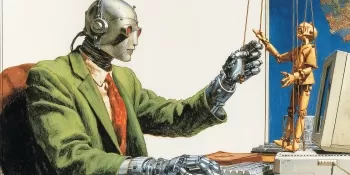 OpenAI Upgrades ChatGPT Pro to o3, Boosting Value of $200 Monthly Subscription
This week witnessed significant AI developments from tech giants including Microsoft, Google, and Anthropic. OpenAI concludes the flurry of announcements with its own groundbreaking updates - extending beyond its high-profile $6.5 billion acquisition
OpenAI Upgrades ChatGPT Pro to o3, Boosting Value of $200 Monthly Subscription
This week witnessed significant AI developments from tech giants including Microsoft, Google, and Anthropic. OpenAI concludes the flurry of announcements with its own groundbreaking updates - extending beyond its high-profile $6.5 billion acquisition
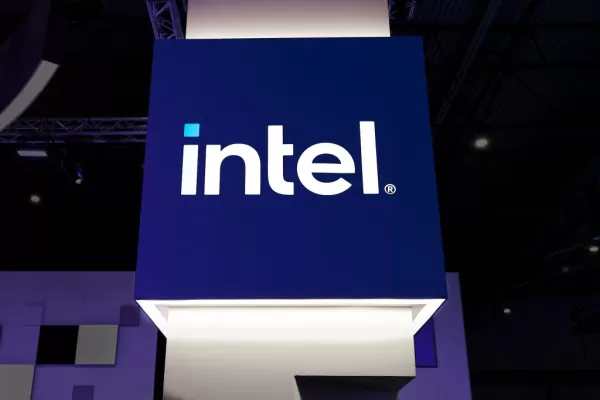 US Government Invests in Intel to Boost Domestic Semiconductor Production
The Trump administration has prioritized establishing U.S. leadership in artificial intelligence, with reshoring semiconductor production serving as a cornerstone strategy. Recent policy moves, including proposed tariffs and financial incentives, dem
US Government Invests in Intel to Boost Domestic Semiconductor Production
The Trump administration has prioritized establishing U.S. leadership in artificial intelligence, with reshoring semiconductor production serving as a cornerstone strategy. Recent policy moves, including proposed tariffs and financial incentives, dem
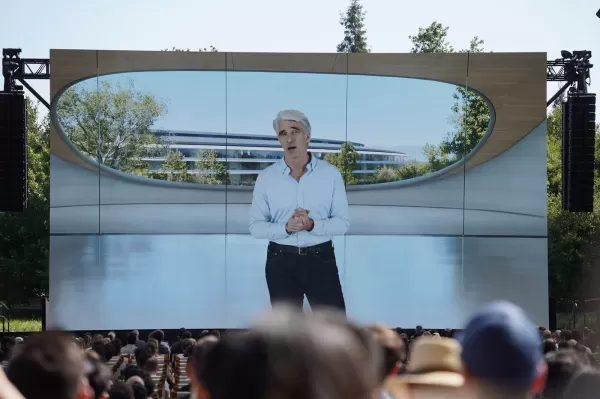 Apple's Craig Federighi Admits AI-Powered Siri Had Serious Flaws in Early Stages
Apple Executives Explain Siri Upgrade Delay
During WWDC 2024, Apple originally promised significant Siri enhancements including personalized context awareness and app automation capabilities. However, the company recently confirmed delays in deliver
Apple's Craig Federighi Admits AI-Powered Siri Had Serious Flaws in Early Stages
Apple Executives Explain Siri Upgrade Delay
During WWDC 2024, Apple originally promised significant Siri enhancements including personalized context awareness and app automation capabilities. However, the company recently confirmed delays in deliver
 August 27, 2025 at 1:01:33 PM EDT
August 27, 2025 at 1:01:33 PM EDT
This AI cover of KiiiKiii’s Kitsch blew my mind! 😍 The voice cloning tech is so wild, it’s like hearing a ghost sing. But, man, I wonder if artists are cool with their voices being used like this. Ethics aside, it’s super fun to hear!


 0
0
 August 25, 2025 at 5:01:22 PM EDT
August 25, 2025 at 5:01:22 PM EDT
哇,AI音乐翻唱真是个新鲜玩意儿!KiiiKiii的那个Kitsch转变,通过人工智能听起来好酷啊。想想伦理问题吧,会不会抢了原创音乐人的饭碗?不过技术应用前景无限大🤔


 0
0
 August 25, 2025 at 5:01:22 PM EDT
August 25, 2025 at 5:01:22 PM EDT
AIで音楽カバーがこんなに進化するなんて面白いね。KiiiKiiiのキッチュな変身、声クローニング使ってどんな感じになるんだろう?ちょっと心配だけど、創造性が広がってワクワクするよ🎵


 0
0
 August 25, 2025 at 5:01:22 PM EDT
August 25, 2025 at 5:01:22 PM EDT
Whoa, AI music covers are blowing my mind! Turning KiiiKiii's kitsch style into something fresh with voice cloning sounds super innovative. Can't wait to hear how it transforms the original tracks—anyone tried it yet? 🚀


 0
0
 August 4, 2025 at 2:01:00 AM EDT
August 4, 2025 at 2:01:00 AM EDT
This AI cover by KiiiKiii is wild! It’s like hearing a song reborn with a totally new vibe. Makes me wonder how far this tech can go—will we all be making our own pop star covers soon? 😎


 0
0
 July 27, 2025 at 9:19:05 PM EDT
July 27, 2025 at 9:19:05 PM EDT
KiiiKiii's AI cover of Kitsch blew my mind! The way AI nails those vocal nuances is unreal, but I’m kinda worried about how easy it is to mimic artists now. 😅 What’s next, AI dropping whole albums?


 0
0





























